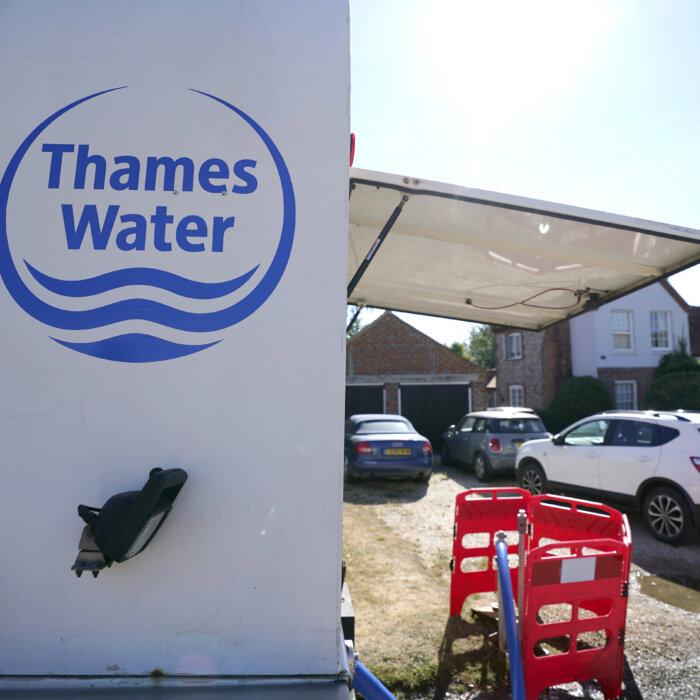Households are about to see across-the-board increases to their bills as “awful April” heralds the start of price hikes on everything from energy to council tax.
Energy bills for millions of households are to rise by 6.4 percent from April 1 when Ofgem increases its price cap for a third consecutive quarter, while water bills will increase by an average £123 per year, the largest rise since the industry was privatised in 1989.
Most councils in England are planning to raise council tax bills by 4.99 percent—the maximum amount permitted—next month, with some including Birmingham, Bradford, Newham, Somerset, Trafford, and Windsor and Maidenhead having been granted special permission to go even higher.
Broadband and phone bills are rising, while the cost of a TV licence and the standard rate of car tax are both going up by £5, and electric vehicles will no longer be exempt.
With the average household already spending £2,062 on essentials each month, analysts believe the latest increases could add another £49.45 to this figure.
Alice Haine, personal finance analyst at Bestinvest by Evelyn Partners, said: “For a while it seemed as though the cost-of-living crisis was behind us; inflation was easing, interest rates were coming down, and the road ahead looked brighter.
“But a mixed bag of miserable macro-economic news of late has radically shifted that outlook.
“The result of all this turmoil is that British households now face a barrage of bill hikes in April that will take a swipe at their living standards by eating away at their disposable income.
“Anyone lucky enough to receive a pay rise in recent months will be dismayed to see most of that swallowed up by sharp hikes in household bills, whether that is council tax, water, or energy, among other costs and taxes.
“Going back to budgeting basics will be key for households to ensure they don’t stray into overdrafts or find themselves forced to pay bills on credit cards because they cannot make ends meet.”
Uswitch spokesman Ernest Doku said: “With millions of households already feeling the financial strain, the upcoming bill hikes in April will only make things harder.
“While not all price hikes can be avoided, there are still opportunities to save by switching providers. By reviewing your energy, broadband, and mobile deals you can lock in better rates and avoid paying more.”
Energy
Ofgem’s latest increase to the energy price cap will add £9.25 a month or £111 to the annual bill of an average household that pays by direct debit, which already currently stands at £1,738.The unit price of gas will increase from 6.34p per kilowatt-hour (kWh) to 6.99p per kWh while electricity is going up from 24.86p/kWh to 27.03p/kWh.
Ahead of the increase coming into effect, households are urged to send in an accurate meter reading to ensure that all energy they use before the higher prices come into effect is billed at the lower rate.
It is also sensible to check if it would be worth switching to a fixed tariff, which works by locking in a set rate for gas and electricity for a specific period such as 12 months. These deals are becoming increasingly common across energy firms, but consumers need to check for exit fees.
To find the right tariff, households should consider all options including cheaper variable tariffs—a tracker product that changes daily based on wholesale cost—or time-of-use tariffs that can benefit those charging electric vehicles overnight or who want to take better advantage of off-peak rates.

Water
Households in England and Wales will see their water bills increase by an “extortionate” average of £86 over the next year alone.Regulator Ofwat has allowed companies to raise average bills by 36 percent or £157 in total over the next five years to £597 by 2030 to help finance a £104 billion upgrade for the sector.
Some firms have been allowed significantly higher increases. Southern Water customers will face a 53 percent increase and Severn Trent households will see their bills rise by 47 percent, before inflation.
However, despite the average £31-a-year rise, households will be hit particularly hard from April with an average increase of £86 or 20 percent front-loaded into the coming year, with smaller percentage increases in each of the next four years.
Council Tax
Millions of households will see a jump in their annual council tax bills from April 1 with most local authorities in England increasing a typical band D bill by 5 percent—an increase of £109 to £2,280 from the 2024–25 figure of £2,171—although some local councils have permission to impose hikes of up to 10 percent.They are Windsor and Maidenhead, Newham, Bradford, Birmingham, Somerset, and Trafford.
Bills in Wales are set to rise by around 4.5 percent to 9.5 percent and in Scotland the jump will typically be at least 8 percent, though this is the first increase in two years following a freeze in 2024–25.
The amount of council tax you pay is set by the value of your home, with the average value home being placed in Band D.
If you think your property is in the wrong band it might be worth requesting a revaluation, however, be aware there is a risk it could be placed into a higher band rather than a lower one.
Mobile and Broadband
Some customers will see rises in line with inflation, while others may face fixed hikes depending on when they signed up or upgraded.For those on inflation-linked contracts, broadband prices will rise by an average of £21.99 annually, with some newer plans seeing increases of up to £42 a year, according to Uswitch.
Mobile users face similar increases, with an average increase of £15.90 for inflation-linked contracts, and up to £48 for newer deals.
Broadband customers should check their contract status to see if it is possible to switch without incurring a penalty. Switching to a new broadband deal after the initial contract has ended could save up to £180 a year.
Vodafone, Virgin Media, and Community Fibre are some of the providers freezing prices until 2026 for those who switch before the April increases.
Mobile customers can text INFO to 85075 to check the status of their contract and any exit fees, or consider lowering their data plan to save money.

TV Licence
April’s bill increases will see the price of a standard colour TV licence rise by £5 to £174.50 a year. The price of a black and white licence will also go up from £57 to £58.50.Car Tax
The standard rate of tax for cars registered after April 2017 will rise to £195 from the start of April, an increase of £5. Some owners may pay more, or less, if their car was first registered before 2017, with the rate dependent on when a car was first registered and the type of fuel it consumes.Another major change will see owners of electric vehicles (EVs) subject to car tax for the first time. Any EVs registered since April 2025 will be subject to the lowest rate of tax of £10 in the first year before moving to the standard rate of £195.






